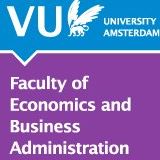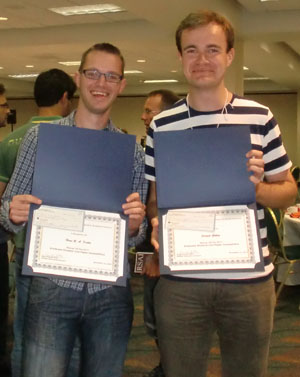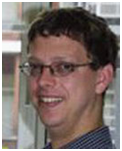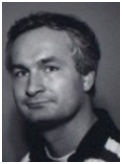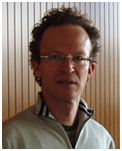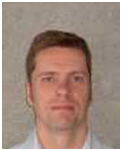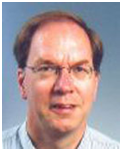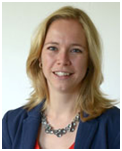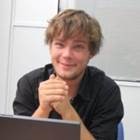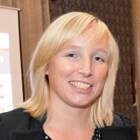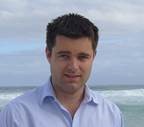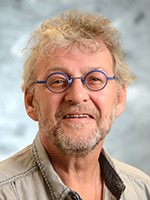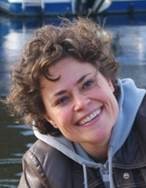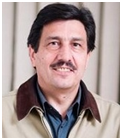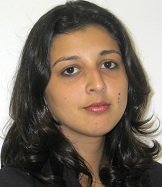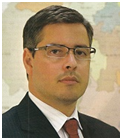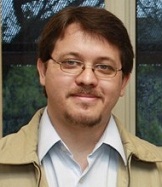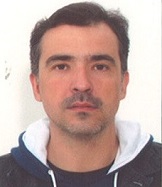Elisabete Martins
VU University Amsterdam
The Department of Spatial Economics at the VU University Amsterdam is engaged in many economic problems in which space plays a prominent role. The department of Spatial Economics offers insights and applications from a multi-disciplinary perspective.
The 60 staff members are involved in both fundamental research, as well as in national and international commissioned research. With this research, the department has gained national and international recognition, as shown by the large number of international publications and awards, the appearance of different staff members as experts in the media and the presence of various section members on the typically Dutch phenomenon of 'Economists Parade'.
Programs and Degrees in Regional Science
Thesis on Regional Science in the last five years
2016
Bakens, Jessie – Ph.D. – Economic impacts of immigrants and ethnic diversity on cities
H.L.F. de Groot, R.J.G.M. Florax & P. Mulder
Dimitropoulos, Alexandros – Ph.D. - Low emission vehicles: Consumer demand and fiscal policy
J.N. van Ommeren
Husby, Trond – Ph.D. – Economic impacts of behavioural responses to flood risk - Exloring general equilibrium using micro-level insights
M.W. Hofkes & H.L.F. de Groot
Jacobs-Crisioni, Chris – Ph.D. – Spatial data analyses of urban land use and accessibility
H.J. Scholten & E. Koomen
Kagan, Mark – Ph.D. – Issues in climate change economics: Uncertainty renewable energy innovation and fossil fuel scarcity
C.A.A.M. Withagen & F. van der Ploeg
Mouwen, Arnoud – Ph.D. – The impact of public transport reform: An assessment of deregulation policies
J.N. van Ommeren & C.C. Koopmans
Ryszka, Karolina – Ph.D. - Resource extraction and the green paradox: Accounting for political economy issues and climate policies in a heterogeneous world.
C.A.A.M. Withagen & G.C. van der Meijden
Wang, Zhiling. People on the move: Barriers of culture, networks and language
P. Nijkamp, T. de Graaff & B.R. Chiswick
2015
Caragliu, Andrea – Ph.D. – The economics of proximity: regional growth, beyond geographic proximity
P. Nijkamp & R. Capello
Dijk, Justin – Ph.D. – On the efficiency and effectiveness of policy instruments for the procurement of environmental services
D.P. van Soest & J.H. Ansink
Estrada Porrua, Francisco – Ph.D. – (2015, April 01). A contribution to the study of the economic causes and consequences of climate change: An interdisciplinary approach
R.S.J. Tol, E. Papyrakis & P. Perron
Gheasi, Masood – Ph.D. – Social economic aspects of the diaspora world
P. Nijkamp & P. Rietveld
Gosens, Tom – Ph.D. – The value of recreational areas in urban regions
P. Rietveld & J. Rouwendal
Gubins, Sergejs – Ph.D. –Information technologies and travel
E.T. Verhoef & dr. T. de Graaff
Kobus, Martijn – Ph.D. – Economic studies on public facility use
P. Rietveld & J.N. van Ommeren
Ridderstaat, Jorge – Ph.D. – Studies on determinants of tourism demand dynamics in a small island destination
P. Nijkamp & R.R. Croes
Silva Montalva, Hugo – Ph.D. – Airport pricing policies. Airline conduct, price discrimination, dynamic congestion and network effects
E.T. Verhoef & V.A.C. van den Berg
Vries, Jacob J. de – Ph.D. – Estimation of Alonso's theory of movements for commuting
J.N. van Ommeren & P. Rietveld
Weijde, Harry van der – Ph.D. – The industrial organization of transport markets. modeling, pricing, investment and regulation in rail and road networks
E.T. Verhoef & V.A.C. van den Berg
2014
Gerritse, Michiel – Ph.D. – Policy competition and the spatial economy
H.L.F. de Groot & E.T. Verhoef
Loon, Ruben van – Ph.D. – Tourism and the economic valuation of cultural heritage
P. Rietveld & J. Rouwendal
2013
Behrens, Christian – Ph.D. – Product differentiation in aviation passenger markets. The impact of demand heterogeneity on competition
E.T. Verhoef, E. Pels & M.G. Lijesen
Duijn, Mark van – Ph.D. – Location choice, cultural heritage and house prices
P. Rietveld & J. Rouwendal
Groot, Stefan – Ph.D. – Agglomeration, globalization and regional labor markets
H.L.F. de Groot & P. Rietveld
Koster, Hans – Ph.D. – The internal structure of cities
P. Rietveld & J.N. van Ommeren
Mohlmann, Jan – Ph.D. – Globalization and productivity
H.L.F. de Groot & P. Rietveld
Ozgen, Ceren – Ph.D. – Impacts of immigration and cultural diversity on innovation and economic growth
P. Nijkamp & H.J. Poot
Peer, Stefanie – Ph.D. – The economics of trip scheduling, travel time variability and traffic information E.T. Verhoef & C.C. Koopmans
Steenbruggen, John – Ph.D. – Road traffic incident management and situational awareness
P. Rietveld, H.J. Scholten & A.J. van der Vlist
Awards in Regional Science in the last ten years
|
NARSC Graduate-Student-Led Paper Competition 2011 - Sergej Gubins - Teleworking and Congestion: A Dynamic Bottleneck Analysis, co-authored by Erik Verhoef 2011 - Hans Koster - Upscale Neighbourhoods: Historic Amenities, Income and Spatial Sorting of Households, co-authored by Jos van Ommeren en Piet Rietveld |
|
2010 - Michiel Gerritse - Commuting and solvable agglomeration 2008 - Eveline van Leeuwen - The Effects of Future Retail Developments on the Local Economy - Combining Micro and Macro Approaches 2000 - Thomas de Graaff - Estimating the Effect of Labor Market Absorption of Ethnic Minorities 1996 - Erik Verhoef - The Implementation of Marginal External Cost Pricing in Road Transport |
Regional Science Scholars’
|
Henri L.F. de Groot |
Frank R. Bruinsma |
Eric Koomen |
Erik Verhoef |
Peter Nijkamp |
|
|
Eric Pels |
Jan Rouwendal |
Thomas de Graaff |
Peter Mulder |
|
Jasper Dekkers |
Paul R. Koster |
Eveline van Leeuwen |
Hans Koster |
Martin Adler |
|
Rixt Bijker |
Christian Behrens |
Raymond Florax |
Maureen Lankhuizen |
Vasco Diogo |
REPEC Ranking
The Department of Spatial Economics at VU University Amsterdam is a world player in the domains of Spatial, Transport and Environmental Economics. REPEC ranks the Department in the top 5% of the world in the following domains: Transport Economics, Tourism Economics, Economic Geography Environmental Economics, Energy Economics, and Urban and Real Estate economics. For the Transport Economics field it even achieves position 4 worldwide (May 2013).
No less than 7 professors from the Department are ranked by REPEC in the top 5% of Economics authors of the world, namely Peter Nijkamp, Richard Tol, Piet Rietveld, Rick van der Ploeg, Cees Withagen, Erik Verhoef and Henri de Groot.
USP University of Sao Paulo
The University of São Paulo (USP) is the top-ranked university in Latin America, as world rankings recognize.
The University of Sao Paulo Regional and Urban Economics Lab – NEREUS – is based in the Department of Economics at USP, the top-ranked Department of Economics in the country. It draws its researchers from faculty, gra
duate and undergraduate students interested in the spatial dimension of socioeconomic processes. Many of the projects the students work on then become the basis for their Master theses and PhD dissertations. It offers students a sound academic background, which takes into consideration recent advances in theoretical and empirical Economics. About one-third of the department’s publications are on Regional Science related topics, playing a prominent role in the academic life of the Department of Economics. Moreover, students taking the field in Regional and Urban Economics can take advantage of the diversity provided by the university environment, having the opportunity to attend courses in other departments.
At the undergraduate level, courses on Regional and Urban Economics, Input-output Analysis, and Project Evaluation are regularly offered by the NEREUS faculty, with an annual attendance of around 300 students in Economics.
Graduate Courses on Regional Science – regularly offered at the Graduate Program in Economics
EAE5823 Urban Economics
EAE5853 Spatial Econometrics
EAE5918 Applied General Equilibrium Models
EAE5955 Input-Output Analysis: Theory, Foundations and Applications
EAE5975 Spatial Economics
EAE5976 Environmental Economics
EAE5983 Public Policy Evaluation
NEREUS holds a weekly seminar series providing students with the opportunity to present their work in progress in a constructive environment.
NEREUS faculty members are active researchers who publish regularly in leading academic journals in their fields. Altogether, they have published over 90 articles and 60 books and book chapters in the last five years. Their research has appeared, among others, in the following journals:
Regional Science and Urban Economics, American Economic Journal: Applied Economics, Renewable & Sustainable Energy Reviews, Energy, Ecological Indicators, Journal of Industrial Ecology, Revue d'Économie Politique, Biological Sciences, EURE, Fronteras de La História, Journal of the American Society for Information Science and Technology, Journal of Economic Studies, Habitat International, Transportation Research Part A: Policy and Practice, Journal of Development and Economic Policies, Economy of Region, Latin American Business Review, REGION, BMC Public Health, Energy Economics, The Annals of Regional Science, Journal of Regional Science, Tourism Economics, Italian Journal of Regional Science, Journal of Development Effectiveness, Regional Studies, Journal of Applied Statistics, International Regional Science Review, Economic Systems Research, Regional Science Policy and Practice, Ensayos sobre Política Económica, Journal of Economic Structures, Foreign Affairs, Studies in Regional Science, Annals of Tourism Research, International Journal of Production Economics, Papers in Regional Science.
NEREUS: Team 2016-2017
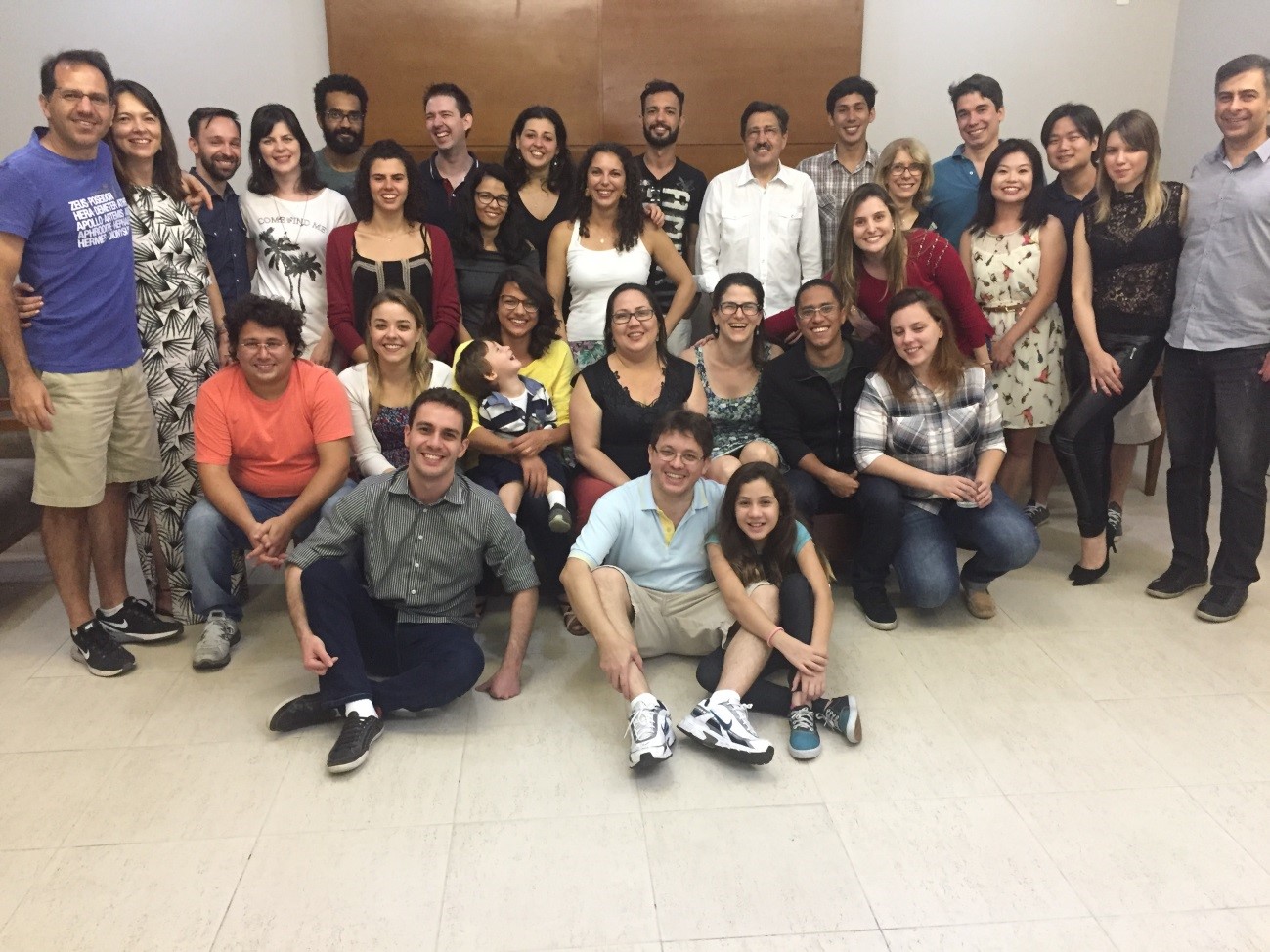 |
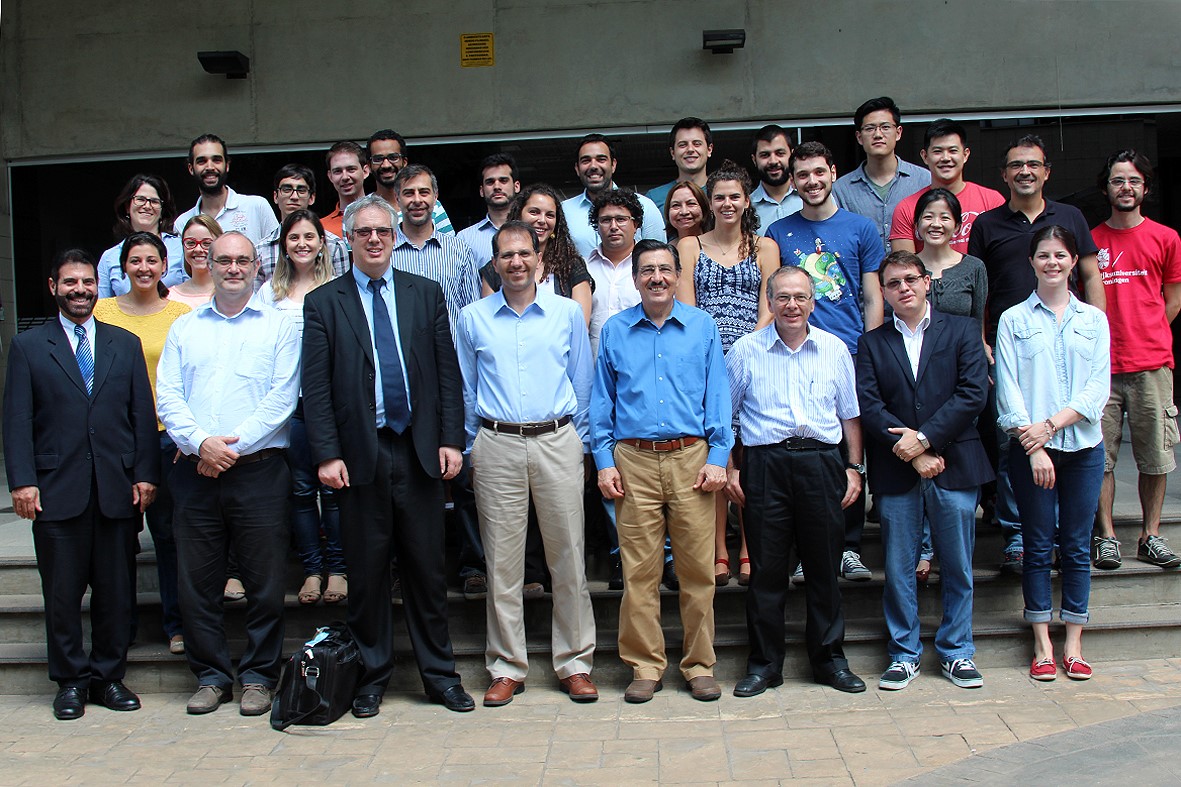 |
Exchange Visitors
There is a constant flow of visitors to and from NEREUS that helps fostering the international scholarly collaboration network actively involving faculty and students from the group. Recent visitors include scholars from a different range of international and domestic universities and think tanks, such as: University of Illinois at Urbana-Champaign, American University of Beirut, Princeton University, Rutgers University, Ohio University, McMaster University, Leiden University, University of Manchester, University of Gröningen, University of Cambridge, Universidad Católica del Norte, Massachusetts Institute of Technology, Österreichisches Institut für Wirtschaftsforschung (WIFO), OCP Policy Center, Federal University of Paraná, Federal University of Juiz de Fora, Federal University of Minas Gerais, Federal University of Pernambuco, University of Maringá, Federal University ofUberlândia, Federal University ofBahia, among others.
Thesis and Dissertations on Regional Science in the last five years
2016
Scriptore, Juliana Souza – Ph.D. – Impacts of Sanitation on Health and Education: A Spatial Analysis – Carlos R. Azzoni
Palialol, Bruno Toni – M.A. – In-kind Transfers in Brazil: Household Consumption and Welfare Effects – Paula C. Pereda
Andrade, Luíza Cardoso de – M.A. – Spillover Effects of Blacklisting Policy in the Brazilian Amazon – André Luis Squarize Chagas
Li, Denise Leyi – M.A. – The New ENEM and the Sisu Platform: Effects on Migration and School Evasion – André Luis Squarize Chagas
Oliveira, Gabriel Lyrio de – M.A. – The Effect of Cash Transfers on Migration Flows between Brazilian Municipalities from 2008 to 2010 – André Luis Squarize Chagas
Cavalcante, Elias Celestino – M.A. – Determinants of Tax Rates in the Local Level: The Case of the ISS in the State of São Paulo – André Luis Squarize Chagas
Rozenfeld, Tales – M.A. – Economic Impacts of Road Investments under Different Financing Alternatives – Eduardo A. Haddad
2015
Imori, Denise – Ph.D. – Brazilian Regions in the Global Value Chain: Trade and the Environment – Joaquim J. M. Guilhoto
Vassallo, Moisés Diniz – Ph.D. – Sectoral and Regional Economic Impacts of Investments in Transport Infrastructure – Eduardo A. Haddad
Barufi, Ana Maria Bonomi – Ph.D. – Agglomeration Economies and Labour Markets in Brazil – Eduardo A. Haddad
Campos, Rodrigo Calabrich – M.A. – A Spatial Impact Assessment of the Sistema Viário Oeste - Bahia: A Computable General Equilibrium and Acessibility Index Approach – Eduardo A. Haddad
2014
Chagas, Lucas Squarize – M.A. – Strategy and Lobby: An Analysis of the Interaction of Economic Groups and Campaign Contributions – Eduardo A. Haddad
Marcos, Rafael Perez – M.A. – Decomposition of the Decrease in Regional and Personal Income Inequalities in Brazil between 2004 and 2009: An Analysis via Social Accounting Matrices – Carlos R. Azzoni
Góis Sobrinho, Ednaldo Moreno – M.A. – The Location and the Innovative Gegree of the Brazilian Relevant Industrial Agglomerations – Carlos R. Azzoni
2013
Castelani, Sergio André – Ph.D. – Forests and Cities: Essays on Urban Growth and Development in the Brazilian Amazon – Danilo C. Igliori
Sidone, Otávio José Guerci – M.A. – Spatial Analysis of Scientific Production and Collaboration Networks in Brazil: 1990-2010 – Eduardo A. Haddad
Santos, Eliane Teixeira dos – M.A. – Economic Impacts of Natural Disasters in Megacities: The Case of Floods in São Paulo – Eduardo A. Haddad
Awards in Regional Science
PAULO HADDAD prize
2012 - Ana Maria B. Barufi - Expansion of undergraduate courses and the the migration of students in Brazil: an analysis with the Demographic Census of 2010
2011 - Fernando S. Perobelli
2001 - Eduardo A. Haddad and Fernando S. Perobelli - Regional Absorption of Terms of Trade Shocks
National Awards
CAPES Thesis Award 2011, Brazilian Ministry of Education
2012 - Gervásio F. dos Santos - Energy policy and regional inequalities in the Brazilian economy
BNDES Economy Award 2010 – Best Doctoral Thesis
2011 - Gervásio F. dos Santos - Energy policy and regional inequalities in the Brazilian economy
National Confederation of Industry Prize (CNI Economics Award)
2011 - Daniela Schettini and Carlos Roberto Azzoni - Regional industrial productivity differentials in Brazil in the 21st centur
Ruy Miller Paiva Prize, Brazilian Society of Agricultural Studies (SOBER)
2007 - Joaquim Guilhoto, Carlos Azzoni, Silvio Ichihara and Fernando G. da Silveira - The importance of agribusiness activities in the Brazilian economy
Regional Science Scholars’

Eduardo Haddad |
Carlos Azzoni |
Joaquim Guilhoto |
Paula Carvalho Pereda |
Alexandre Porsse |
André Luis Chagas |
Carlos Gonçalves Junior |
Marcos Ki Hyung Lee |
Other relevant information
The faculty group from NEREUS has organized and hosted the VIII World Conference of the RSAI (2008), the 17th International Input-output Conference (2009) and the EcoMod Network Conference (2007).
Faculty from NEREUS have led the creation of the Brazilian Branch of RSAI (ABER – Brazilian Association of Regional and Urban Studies), and have provided two of its presidents since 2002 (Carlos Azzoni, 2002-2004; Eduardo Haddad, 2008-2010).
Leading faculty from NEREUS have contributed to the creation and operation of RSAmericas, which represents the affiliated and common interests of the various Regional Science organizations of the American Continents – Eduardo Haddad was the first president of RSAmericas (2008-2010). In addition, they have actively helped in the creation of other RSAI branches in South America (e.g. Chile, Colombia and Argentina).
INTERNATIONAL AWARD ON LOCAL DEVELOPMENT
Communauté de communes: «Cluses, Arve et Montagnes»
INTERNATIONAL AWARD ON LOCAL DEVELOPMENT
NOTICE OF COMPETITION
Article 1 – Introduction and purpose
La Communauté de communes «Cluses, Arve et Montagnes» publishes an international competition for an internationally recognised and distinguished prize on research and successful initiatives in promoting and supporting local development, particularly important and distinctive at international level. This aims to encourage scholars, experts, young researchers, public institutions, public and private subjects and businesses to enhance awareness of local development policies, by focusing on analytic tools and processes, and enhancing the capability to diagnose and compare them at international level.
The Award is divided into the following sections:
a) Section "essays" – This section is open to essays published in a volume in the last three years.
Internationally known scholars and experts can also take part in this section if their work has made a major contribution to the identification of development models, the interpretation of territorial development trajectories, and to promotion of ideas and project proposals of special significance for the advancement of local development strategies. The Award amounts to € 5,000.
b) Section "young researchers" - This section is open to young researchers, whose doctoral thesis presented and discussed in the last three years, is particularly innovative in its methodology and interpretive models and in analysing new relevant cases for local development that have produced effective intervention strategies. The Award consists in a scholarship which amounts to € 3,000. The evaluation panel can recommend publication of the winning thesis.
c) Section "territories" - This section is open to territories that stand out for their innovative actions that were essential for their social and economic transformation, by allowing them to overcome their backwardness, long declin and economic stagnation. The present notice is also open to those territories that have started/promoted an integrated or shared development process in one of the following issues: innovation, internationalization, human resources qualification, etc. – Eligible applicants are development agencies, public institutions, private associations, public-private partnership organizations, consortia and other organizations working on the implementation of local development strategies and policies.
d) Section "enterprises" - This section is open to those enterprises, both single and associated, which have developed initiatives or projects involving other actors of the territory in the following issues: innovation, internationalization, training and qualification of human resources, entrepreneurial development, social cohesion, productive chain integration, etc. (territorial responsibility of the enterprise).
Article 2 – How to participate
Participation in this competition is voluntary. You should send your application, fully completed and accompanied by the necessary documentation, to allow the evaluation panel to assess your proposal within the 30th Juin 2013, in three copies,to: Communauté de communes «Cluses, Arve et Montagnes», Mairie de Cluses, Place Charles de Gaulle, 74300 CLUSES (F).
The documentation needs to be submitted in one of the following languages: English, French, Italian, Portuguese, Spanish. If the original documentation is available in a different language, you need to enclose a translation into one of the above mentioned languages.
The participation is confidential and may be presented by third parties.
The members of the judging board may directly submit nominations for the different sections of the Award.
Article 3 – Ineligible applications
Applications received after the expiration date of the present notice, wrongly filled because not in accordance with the rules of the notice or incomplete, will not be evaluated.
Article 4 – Assessment of the applications
An evaluation panel, appointed by the Communauté de communes: «Arves et Montagnes» and with four academic members and Professor Gioacchino Garofoli as the President, will evaluate the applications received within the expiration date. The evaluation panel will complete its assessment by 10th September 2013. Documents will not be returned.
Article 5 – Award cerimony
The Award ceremony will be held in Cluses (F) in the framework of the International Conference on Local Development scheduled for the second part of September 2013. Interested participants will be informed in due advance about the date and programme of the Conference.
Article 6 – Confidentiality of information
All information regarding the Applicants’ profile, enterprises, proposals and contents are considered strictly confidential and reserved.
All interested people looking for more information could address to the Communauté de communes «Cluses, Arve et Montagnes» at the following adress: Mairie de Cluses. Place Charles de Gaulle. 74300 CLUSES This email address is being protected from spambots. You need JavaScript enabled to view it.
Call for Applications | THE BENJAMIN H. STEVENS 2014-2015 | GRADUATE FELLOWSHIP IN REGIONAL SCIENCE
Graduate students enrolled in Ph.D. programs in North America are encouraged to apply for the Fifteenth Benjamin H. Stevens Graduate Fellowship in Regional Science, administered by the North American Regional Science Council of the Regional Science Association International (NARSC-RSAI). This Fellowship, in support of thesis research in Regional Science, is awarded annually in memory of Dr. Benjamin H. Stevens, an intellectual leader whose selfless devotion to graduate students as teacher, advisor, mentor, and friend had a profound impact on the field. Regional Science is a multidisciplinary field concerned with the theory and method of urban and regional phenomena. Regional Scientists apply theoretical and empirical frameworks and methods of the social and other sciences, as well as develop new ones specifically for regional analysis and policy.
Eligible students should have completed all degree requirements except for their dissertation by the time the Fellowship commences. A requirement of the Fellowship is that the recipient has no duties other than dissertation research during the Fellowship, although the recipient may hold other fellowships concurrently. Applications from students working in any area or any Ph.D. program are welcome as long as their dissertation research addresses a question in Regional Science.
The Fellowship consists of a stipend in the amount of $30,000 (U.S.), paid over a twelve-month period. Applications for the 2014-2015 Fellowship should be sent electronically by the applicant to the Selection Committee Chair, Tony Grubesic, and received by February 15, 2014. An application consists of the following materials:
1. A curriculum vita of no more than two (2) pages in length.
2. A statement in ten (10) pages or less explaining the questions and issues to be addressed, the approach to be used, and the product expected from the thesis research, preceded by a summary (1-page maximum) describing the intellectual merit of the proposed research, and the broader impacts that may result. The 10-page limit is inclusive of references, but exclusive of tables and figures. This text should be in 12 point or larger font, double-spaced, with one-inch margins; references may be single-spaced.
3. Copies of the candidate’s transcripts for all graduate study. Unofficial copies are acceptable.
In addition, the thesis supervisor shall provide a confidential letter sent separately as an attachment from her/his email account with the student’s name in the subject line to Tony Grubesic This email address is being protected from spambots. You need JavaScript enabled to view it. This email address is being protected from spambots. You need JavaScript enabled to view it.This email address is being protected from spambots. You need JavaScript enabled to view it.. In the letter the supervisor should assess the quality and significance of the proposed dissertation research, specify the current state of progress toward the candidate’s degree and provide a commitment by the thesis supervisor to obtain a tuition waiver for the candidate for the year of the Fellowship. A condition of the Fellowship is the granting of a tuition waiver for the year of the Fellowship by the university, or equivalent payment of the student’s tuition.
Applications should be emailed to Professor Tony Grubesic. Questions may also be sent to him at This email address is being protected from spambots. You need JavaScript enabled to view it.This email address is being protected from spambots. You need JavaScript enabled to view it.This email address is being protected from spambots. You need JavaScript enabled to view it.. For information about NARSC, go to http://www.narsc.org/newsite/. For information about RSAI, go to http://www.regionalscience.org.
June 11, 2013
Zhenhua Chen of George Mason University Selected to Receive the Fourteenth Annual Benjamin H. Stevens Graduate Fellowship in Regional Science
Zhenhua Chen, a Ph.D. candidate in the School of Public Policy at George MasonUniversity, was selected as the winner of the Fourteenth Annual Benjamin H. Stevens Graduate Fellowship in Regional Science. The Fellowship will provide one-year stipend of $30,000 to support Chen in his research entitled, Transportation and Regional Output in the Northeast Megaregion: A Spatial Econometric Computable General Equilibrium Assessment. Chen’s research seeks to contribute new ideas for infrastructure impact analysis by developing a CGE model with an integration of spatial econometric techniques to solve for spatial dependence. Chen’s approach is expected to be very robust since the parameters of factor substitution elasticity are exogenously estimated and the issue of spatial dependence is adequately controlled. The results of the CGE simulation are expected to be much closer to reality than by traditional methods. His research is supervised by Professor Kingsley Haynes of the School of Public Policy at George Mason University.
The Fellowship is awarded in memory of Dr. Benjamin H. Stevens, an intellectual leader whose selfless devotion to graduate students as teacher, advisor, mentor, and friend continues to have a profound impact on the field of regional science. Fundraising efforts to increase the Fellowship’s endowment are ongoing. Donations should be sent to: The Stevens Fellowship Fund, First Financial Bank, 1205 S. Neil Street, Champaign, IL 61820 USA. Checks should be drawn to The Stevens Fellowship Fund. Donations may also be made by credit card through the NARSC website at http://www.narsc.org/newsite/donations2.php.
The 2013-14 Stevens Fellowship competition was judged by a Selection Committee composed of: Antonio Páez, Geography and Earth Sciences, McMaster University, chair; Lawrence Brown, Geography, Ohio State University;Tony Grubesic, Information Science and Technology, Drexel University; Nathaniel Baum-Snow, Economics, Brown University; and Laurie Schintler, Public Policy, George Mason University. The Stevens Fellowship Committee administrates the Stevens Fellowship Fund on behalf of the North American Regional Science Council; its members are: Ronald Miller, Chair; David Boyce, Secretary; Michael Lahr, Treasurer; Janet Kohlhase; and Neil Reid, Executive Director of NARSC.
The Committee thanks the 18 students who entered the competition this year, as well as their thesis supervisors. Faculty at all North American Ph.D. programs related to the interdisciplinary field of Regional Science are urged to encourage their best students to apply for the Fifteenth Annual Stevens Graduate Regional Science Fellowship. The winning student’s thesis research in the field of Regional Science will be supported during the 2014-2015 year with a one-year stipend of $30,000. The application deadline is February 15, 2014. Full submission guidelines will be posted at http://www.narsc.org/bapp.html
June 10, 2013
The latest issue of Regional Science Policy & Practice is available!
Regional Science Policy & Practice
© RSAI
Volume 5, Issue 2 Pages i - i, 149 - 262, June 2013
Special Issue: The new urban world – opportunity meets challenge
The latest issue of Regional Science Policy & Practice is available on Wiley Online Library
Issue Information
Issue Information (page i)
Article first published online: 4 JUN 2013 | DOI: 10.1111/j.1757-7802.2013.01094.x
EDITORIAL PREFACE
The new urban world – opportunity meets challenge (pages 149–151)
Karima Kourtit, Peter Nijkamp and Mark D. Partridge
Article first published online: 2 MAY 2013 | DOI: 10.1111/rsp3.12000
ARTICLES
The new urban world 2050: perspectives, prospects and problems (pages 153–165)
Janet E. Kohlhase
Article first published online: 2 MAY 2013 | DOI: 10.1111/rsp3.12001
In praise of megacities in a global world (pages 167–182)
Karima Kourtit and Peter Nijkamp
Article first published online: 2 MAY 2013 | DOI: 10.1111/rsp3.12002
A study of Shanghai's development strategy to 2020 (pages 183–200)
Yizhi Wang, Hiroyuki Shibusawa, Edward Leman, Yoshiro Higano and Guoping Mao
Article first published online: 2 MAY 2013 | DOI: 10.1111/rsp3.12003
Global challenges and local responses: creating a new urban world in the shrinking cities of the US industrial midwest (pages 201–217)
Sujata Shetty and Neil Reid
Article first published online: 2 MAY 2013 | DOI: 10.1111/rsp3.12004
The future of non-metropolitan areas (pages 219–224)
Gordon F. Mulligan
Article first published online: 2 MAY 2013 | DOI: 10.1111/rsp3.12005
The Swedish countryside in the neo-urban knowledge economy (pages 225–236)
Hans Westlund and Wolfgang Pichler
Article first published online: 2 MAY 2013 | DOI: 10.1111/rsp3.12006
The declining role of the automobile and the re-emergence of place in urban transportation: The past will be prologue (pages 237–253)
Marlon G. Boarnet
Article first published online: 2 MAY 2013 | DOI: 10.1111/rsp3.12007
Increasing returns to smart cities (pages 255–262)
Hans Lööf and Pardis Nabavi
Article first published online: 2 MAY 2013 | DOI: 10.1111/rsp3.12008
SEMINAIRE "Analyse et politique de la ville"
Séminaire Analyse et politique de la ville
Comité scientifique : Catherine BOILLOT, IAUidf, Philippe BOUDON, École d’Architecture de Paris-La Villette, Lise BOURDEAU-LEPAGE, Université Lyon 3, Jacques BRUN, Université Paris I, Guy BURGEL, Université Paris Ouest-Nanterre La Défense, Michel CANTAL-DUPART, CNAM, Alexandre GRONDEAU (Université Aix-Marseille), Michel HERROU, École d’Architecture de Paris Malaquais, Gérard LACOSTE, IAUidf, Caroline LECOURTOIS, École d’Architecture de Paris-La Villette, Philippe PANERAI, architecte-urbaniste, Suzanne PARÉ, École d’Architecture de Paris-Malaquais, Marc PERELMAN, Université Paris Ouest-Nanterre La Défense, Catherine POUZOULET, Université Charles de Gaulle-Lille 3, Maxime SCHIRRER, CNAM.
Cycle 2012 – 2013
Réinventer la politique de la ville
Troisième session 20 juin 2013
14h-18h
Quel nouveau projet politique pour la ville ?
14 h Accueil par François DUGENY, Directeur Général de l’IAU Île-de-France
14h 10-15h Les grandes questions
Guy BURGEL (Université Paris Ouest-Nanterre La Défense) et Gérard LACOSTE (IAUidf)
Quelques grands problèmes actuels de la politique urbaine : la territorialisation (quel territoire métropolitain, quel territoire non métropolisé), l’institutionnalisation (démocratie métropolitaine et démocratie locale), le projet (sectorisation : quartiers difficiles, logement, ou stratégie globale ?), la place de la « chose publique » dans une société individualiste et tournée vers le libéralisme)…
Confrontation des points de vue sur ces questions, en deux moments : les experts, les élus
15h – 16h 30 Les points de vue experts
Claude LACOUR, économiste (Université Bordeaux 4)
David MANGIN, architecte-urbaniste (Ecole d’architecture de Marne-la-Vallée)
Philippe SUBRA, géopolitologue (Université Paris 8)
16h30 – 18h Les responsabilités politiques
Hugo BEVORT, directeur de cabinet de Pierre Mansat, maire-adjoint de Paris
Françoise DESCAMPS-CROSNIER, députée-maire de Rosny-sur-Seine
Laurent LAFON, maire de Vincennes
18h Cocktail de fin d’année
Précédentes sessions: 17 janvier 2013 L’État souverain : grands ensembles et villes nouvelles
18 avril 2013 Le règne du marché : périurbanisation, gentrification, métropolisation
Le séminaire a lieu à l’IAUidf (Institut d’Aménagement et d'Urbanisme de la Région Ile-de-France) 15, rue Falguière, Paris 15e (métro Falguière, Duroc, Montparnasse)
La participation est gratuite, mais l’inscription préalable vivement recommandée
Informations et inscription : email This email address is being protected from spambots. You need JavaScript enabled to view it. web http://lgu.u-paris10.fr/
Appel à communication pour l’édition 2013 du colloque international de Rabat
Appel à communication pour l’édition 2013 du colloque international de Rabat
Sur le thème :
«Développement et Transformations structurelles et institutionnelles des économies nord africaines et méditerranéennes»
Lieu : Rabat, 14-15 et 16 Novembre 2013
Faculté des sciences juridiques, économiques et sociales – Souissi, Rabat, Maroc
Colloque organisé par :
La Chaire de l’OMC - Université Mohammed V-Souissi (Rabat) avec le soutien de l’Organisation Mondiale du Commerce (OMC, Genève)
La Commission Économique pour l’Afrique des Nations Unies (UNECA, Rabat)
Le Laboratoire d’économie appliquée au développement (LEAD, Université de Toulon)
I- Présentation et cadre général du colloque
Dans un monde incertain et instable en raison de la succession des crises (crise financière et économique mondiale, crise des dettes souveraines et des déficits publics en Europe, notamment) et des développement géostratégiques récents (printemps arabe, aggravation des risques sécuritaires de l’espace sahélo-saharien, etc.), les pays d’Afrique du Nord se trouvent confrontés à plusieurs défis dont celui de l’édification d’économies diversifiées et sophistiquées susceptibles de mieux résister aux chocs externes et d’assurer un développement durable plus inclusif.
Le ralentissement de la croissance dans ces pays n’est pas dû seulement à la succession des dernières crises. Il est également en partie attribuable au manque de diversification de leurs économies et au faible degré de sophistication de leurs systèmes productifs.
En outre, la mauvaise gouvernance et la faible qualité des institutions n’ont pas permis de corriger les défaillances du marché et de favoriser un développement équitable et inclusif.
A cet égard, l’expérience asiatique montre que l’émergence et une croissance plus soutenue passent par une forte diversification de l’économie et un processus de transformation structurelle et institutionnelle dans le cadre duquel l’Etat joue un rôle central. Cette expérience, ainsi que la littérature empirique montrent également qu’il existe une relation en U inversé entre le niveau de développement d’un pays et le degré de diversification de son tissu productif ; le développement augmente avec le niveau de diversification jusqu’à un certain seuil, qui correspond aux économies émergentes.
La dépendance de beaucoup de pays du Sud de la Méditerranée à l’égard d’un seul partenaire – l’Union européenne – ou de l’exploitation de ressources naturelles aggrave la vulnérabilité de leurs économies face aux chocs externes.
Par ailleurs, le profil de spécialisation des pays de la rive Sud de la Méditerranée et les limites de la compétitivité de leur offre productive confirment la nécessité de faire de la diversification de leur économie et de sa transformation structurelle et institutionnelle des priorités politiques de la réforme dans la région.
Pour ne pas enfermer des économies dans une spécialisation peu porteuse, une progression dans l’échelle des avantages comparatifs, par remontée de filières et création d’activités nouvelles dans les secteurs à haute valeur ajoutée, est nécessaire. Une politique industrielle orientée vers la sophistication du processus de la production et des exportations, constituent les leviers d’un changement structurel de ces économies.
Au-delà du développement des secteurs industriels et de services, la transformation structurelle et institutionnelle des économies de la rive Sud de la Méditerranée requiert la rénovation des systèmes d’éducation et de formation, l’amélioration du climat de l’investissement et des affaires ainsi qu’une une mise à niveau tant de l’entreprise que de l’administration.
Enfin, le rôle de l’intégration régionale comme levier de la diversification et de la sophistication des économies sud-méditerranéennes et d’une meilleure insertion dans l’économie mondiale, ne saurait être négligé dans la réflexion sur les meilleures formules susceptibles de promouvoir un processus de diversification, de sophistication et de transformation structurelle des économies de ces pays et de favoriser un nouveau paradigme de développement dans cette région.
Avec les turbulences qui secouent la région, seul un modèle de développement capable d’édifier un système productif plus innovant et plus créateur de valeur ajoutée et d’emplois est capable d’assurer la stabilité sociale et la transition politique pacifique.
II- Objectifs
1. Favoriser l’interaction et l’échange entre les chercheurs africains et du pourtour méditerranéen sur la diversification des économies et de la transformation structurelle et institutionnelle comme leviers de développement durable.
2. Confronter les résultats des études théoriques et empiriques sur l’évolution économique récente des pays de la rive Sud de la Méditerranée et sur l’expérience d’autres régions en matière d’émergence et développement.
3. Analyser le rôle de l’intégration régionale et des chaines de valeur régionales dans le processus de transformation et de diversification des économies.
4. Explorer les potentialités de la coopération multilatérale en matière d’accompagnement du processus de transformation et de diversification des économies méditerranéennes.
III- Axes du colloque
Nouveaux défis et paradigmes de développement.
Industrialisation et transformation structurelle des économies et des sociétés
en Afrique du Nord et en Méditerranée.
Enjeux et voies de la transformation structurelle des économies.
Structures productives et crises internationales.
Politique industrielle et convergence territoriale.
Rôle de l’Etat et des institutions dans le processus de transformation structurelle et de diversification des économies.
Intégration régionale en Méditerranée et transformation structurelle des économies.
Capital humain, formation et transformation structurelle et institutionnelle des économies.
IV- École doctorale méditerranéenne
Le 16 novembre sera consacré à l’organisation d’un séminaire d’études doctorales ouvert à de jeunes chercheurs (doctorants ou étudiants à la sortie du master qui souhaitent débuter une thèse) travaillant soit sur la problématique du colloque, soit sur les pays méditerranéens.
Les candidats intéressés peuvent :
- soit proposer une communication en suivant la procédure générale de réponse au présent appel en y apposant la mention « doctorant ». Leur proposition sera examinée par le comité scientifique du colloque en même temps que toutes les autres et sera retenue soit en tant que communication dans l’un des ateliers parallèles du colloque, soit comme présentation dans le cadre de l’école doctorale (date limite de remise de la proposition le 15 septembre 2013) ;
- soit s’inscrire pour faire une présentation de leur projet ou de leur recherche en cours dans le séminaire d’études doctorales du 16 novembre 2013. Date limite d’inscription : 15 septembre 2013 par courrier électronique à l'adresse suivante : This email address is being protected from spambots. You need JavaScript enabled to view it. en indiquant nom, prénom, université ou laboratoire d’appartenance, niveau d’avancement (projet, début, recherche en cours, soutenance programmée), sujet de la recherche et, le cas échéant, le nom du directeur de thèse.
V- Calendrier scientifique
31 mai 2013 : Date limite d’envoi des propositions de communications (titre, auteurs– avec institutions d’appartenance, e-mail – résumé 2 pages) à: This email address is being protected from spambots. You need JavaScript enabled to view it.
30 juin 2013 : Date d’envoi de la liste des propositions acceptées
15 septembre 2013 date limite d’envoi des communications des auteurs à: This email address is being protected from spambots. You need JavaScript enabled to view it.
15 Octobre 2013 : publication du programme définitif du colloque.
VI- Normes de présentation des communications
Chaque texte doit être d’une longueur maximale de 20 pages, en Times New Roman 12, interligne simple au format WORD. Les communications pourront être écrites (et présentées oralement) en français ou en anglais. En vue de la publication des actes du colloque, les sources utilisées, les tableaux et graphiques insérés doivent être accompagnés de toutes les références universitaires selon les normes en usage. En outre, les versions définitives des communications doivent comporter un résumé d’une page traduisant clairement et pleinement le contenu du texte, ainsi qu’une liste des mots clés et des codes JEL.
La bibliographie doit être mise aux normes en vigueur : Voir les normes détaillées à :
http ://www.tandf.co.uk/journals/authors/style/reference/tf_A.pdf
Pour un ouvrage :
Nom de l’auteur, A.A. (année de publication). Titre et sous-titre de l’ouvrage en italiques. (N° de l’édition si plusieurs éditions). Ville de publication avec indication de l’État si aux USA : Éditeur.
Exemple :
Helfer, M.E., Keme, R.S., & Drugman, R.D. (1997). The battered child (5th ed.). Chicago, IL : University of Chicago Press.
Si ouvrage sous presse indiquer :
Helfer, M.E., Keme, R.S., & Drugman, R.D. (sous presse)…
Si ouvrage repris sur un site web :
Ajouter à la référence ci-dessus : Repris de http ://www.xxxxxx ou Retrieved from http://www.xxxxxx (si ouvrage en anglais).
Chapitre dans un ouvrage :
Auteur, A.A., & Auteur, B.B. (année de publication). Titre du chapitre. In A. Editor & B. Editor (Eds.), Titre de l’ouvrage en italiques (pages du chapitre). Lieu publication : Éditeur.
Exemple :
O’Neil, J.-M., & Egan, J. (1992). Men’s and women’s gender role journeys : Metaphor for healing, transition, and transformation. In B.R. Wainrib (Ed.), Gender issues across the life cycle (pp. 107–123). New York, NY : Springer.
Communication à un colloque :
Nom, C. (année, mois). Titre de la communication en italiques. Communication présentée à intitulé du colloque, Ville, Indication de l’État si aux USA. Exemple :
Lanktree, C. (1991, February). Early data on the Trauma Symptom Checklist for Children (TSC-C). Paper presented at the meeting of the American Professional Society on the Abuse of Children, San Diego, CA.
Article :
Auteur A.A., Auteur, B.B., & Auteur, C.C. (année). Titre de l’article. Titre de la revue, Volume (Numéro), p–p.
Exemple :
Harlow, H.F. (1983). Fundamentals for preparing psychology journal articles. Journal of Comparative and Physiological Psychology, 55(3), 893–896.
VII- Comité scientifique
ABDELMALKI L., Maître de conférences, Université Lumière Lyon 2, GATE-Lyon
AYADI M. Professeur à l’ISG, Tunis
BENABDALLAH Y., Chercheur, CREAD, Alger
BEN HAMMOUDA H., Conseiller spécial du Président de la Banque Africaine den Développement, BAD, Tunis
BERTHAUD P., Université Pierre Mendès France, LEPII-CNRS BEN RHOMDANE M., Professeur, Université de Tunis, Tunis
BOUNEMRA BEN SOLTANE K., Directrice du Bureau de la Commission Économique des Nations Unies pour l’Afrique en Afrique du Nord, Rabat
GHOUFRANE A., Professeur de l’enseignement supérieur, Université Mohammed V- Souissi, Rabat
DKHISSI S., Professeur de l’enseignement supérieur, Université Mohammed
V-Souissi, Rabat
MAANINOU A., Professeur habilité, Université Mohammed V-Souissi, Rabat TOUFIK S., Professeur habilité, Université Mohammed V-Souissi, Rabat LIPCHITZ A., Economiste, Agence Française de Développement, Niamey
OULMANE N., Economiste, Bureau de la Commission Economique des Nations Unies pour l’Afrique en Afrique du Nord, Rabat
PERIDY N., Professeur, LEAD, Université de Toulon RICHET X., Professeur, Université Sorbonne Nouvelle, Paris SADNI JALLAB M., Économiste, OMC, Genève
SANDRETTO R. Professeur, Université Lumière Lyon 2, GATE-Lyon. SILEM A., Professeur, Université Jean-Moulin Lyon 3, Lyon.
THIELEN G, Conseiller à l’Institut de Formation et responsable du programme académique, OMC.
VIII- Comité d’organisation
GHOUFRANE Azzedine
OULMANE Nassim
SADNI JALLAB Mustapha SANDRETTO René THIELEN Gerardo
PERIDY Nicolas
BOUNANI Khadija
BEUGRE Angèle Paule
IX- Valorisation du colloque
Après sélection et procédure de referee, le colloque donnera lieu à des publications dans des revues ou sous forme d’ouvrages.
X- Droits d’inscription
- Individuel : 120 euros
- Étudiants : 50 euros
- Prise en charge institutionnelle : 180 euros
The latest issue of Papers in Regional Science is available!
Papers in Regional Science
© RSAI
Volume 92, Issue 2 Pages 243 - 444, June 2013
Special Issue: Regional Labour Markets. Guest editors: Uwe Blien, Stefan Fuchs and Georg Hirte
The latest issue of Papers in Regional Science is available on Wiley Online Library
INTRODUCTION
New advances in the analysis of regional labour markets (pages 243–248)
Uwe Blien, Stefan Fuchs and Georg Hirte
Article first published online: 31 MAY 2013 | DOI: 10.1111/pirs.12041
ARTICLES
Characteristics of regional industry-specific employment growth rates' distributions (pages 249–270)
Matthias Duschl and Thomas Brenner
Article first published online: 18 FEB 2013 | DOI: 10.1111/pirs.12011
How different are the wage curves for formal and informal workers? Evidence from Turkey (pages 271–283)
Badi H. Baltagi, Yusuf Soner Baskaya and Timur Hulagu
Article first published online: 13 FEB 2013 | DOI: 10.1111/j.1435-5957.2012.00478.x
Regional inequalities and the impact of ‘matching technology’ on the arrival rate of employment offers: A theoretical and empirical analysis (pages 285–304)
Stilianos Alexiadis, Konstantinos Eleftheriou and Peter Nijkamp
Article first published online: 4 APR 2013 | DOI: 10.1111/pirs.12017
Living and working in ethnic enclaves: English Language proficiency of immigrants in US metropolitan areas (pages 305–328)
Julia Beckhusen, Raymond J.G.M. Florax, Thomas de Graaff, Jacques Poot and Brigitte Waldorf
Article first published online: 26 MAY 2013 | DOI: 10.1111/pirs.12023
Modelling geographical graduate job search using circular statistics (pages 329–343)
Alessandra Faggian, Jonathan Corcoran and Philip McCann
Article first published online: 31 MAY 2013 | DOI: 10.1111/pirs.12026
Heterogeneous skills, migration, and commuting (pages 345–360)
Matthias Wrede
Article first published online: 13 FEB 2013 | DOI: 10.1111/j.1435-5957.2012.00471.x
Indirect employment effects of new business formation across regions: The role of local market conditions (pages 361–382)
Michael Fritsch and Florian Noseleit
Article first published online: 9 JAN 2013 | DOI: 10.1111/j.1435-5957.2012.00475.x
The regional distribution of unemployment: What do micro-data tell us? (pages 383–405)
Enrique López-Bazo and Elisabet Motellón
Article first published online: 23 OCT 2012 | DOI: 10.1111/j.1435-5957.2012.00456.x
Minimum wages and teen employment: A spatial panel approach (pages 407–417)
Charlene M. Kalenkoski and Donald J. Lacombe
Article first published online: 2 JUL 2012 | DOI: 10.1111/j.1435-5957.2012.00453.x
Agglomeration and regional employment dynamics (pages 419–435)
Wolfgang Dauth
Article first published online: 2 JUL 2012 | DOI: 10.1111/j.1435-5957.2012.00447.x
BOOK REVIEWS
Interregional migration and public policy in Canada by Kathleen M. Day and Stanley L. Winer. Montreal & Kingston, London and Ithaca: McGill-Queen's University Press, 2012. (Carleton Library Series 223.) 408 pp., 81 tables, 94 figures, 7 appendices, index. Paperback $34.95, cloth $95.00. ISBN 978-0-7735-3745-3. (pages 437–438)
Hannu Tervo
Article first published online: 31 MAY 2013 | DOI: 10.1111/pirs.12020
Business Networks in Clusters and Industrial Districts: The Governance of the Global Value Chain edited by Fiorenza Belussi and Alessia Sammara (eds). London/New York: Routledge, 2009. 418pp. $43.56. ISBN: 978-0-415-53985-2. (pages 438–440)
Trudy-Ann Stone
Article first published online: 31 MAY 2013 | DOI: 10.1111/pirs.12021
Complex Adaptive Innovation Systems. Relatedness and Transversality in the Evolving Region. edited by Philip Cooke . London and New York: Routledge. 2012. 256 pp. £75. ISBN 978-0-415-60375-1. (pages 440–442)
Vesa Harmaakorpi and Anne Jalkala
Article first published online: 31 MAY 2013 | DOI: 10.1111/pirs.12027
Creative industries and innovation in Europe: Concepts, measures and comparative case studies. edited by Luciana Lazzeretti (ed). London: Routledge, 2012. 328 pp. £85.00. ISBN: 978-0-415-67740-0. (pages 442–444)
Jenny Sjöholm
Article first published online: 31 MAY 2013 | DOI: 10.1111/pirs.12032
APPEL A COMMUNICATIONS | 4e colloque International de l’Association ASTRES
Les propositions de communication visent notamment à:
* Présenter et analyser des pratiques, produits, filières, hors des sentiers battus
* Analyser le devenir des formes touristiques hors des sentiers battus : diffusion, modalités d’intégration
* Envisager les modalités d’une éventuelle institutionnalisation, voire généralisation
* Discuter la notion « hors des sentiers battus » et son apport heuristique pour la compréhension du changement touristique
Les thématiques à envisager sont notamment:
*Nouveaux territoires touristiques (banlieues, arrière-pays, interstices territoriaux, marges)
*Nouveaux concepts touristiques (hébergements, sites et patrimoines, nouvelles mobilités)
*Nouvelles pratiques touristiques / nouvelles formes de résidentialité
*Frontières habitants-résidents (décalages, brouillage, dépassements)
*Pratiques transgressives / pratiques tangentes
*Nouveaux acteurs, nouvelles offres (nouvelles configurations inter-organisationnelles)
*Off the beaten track et After hours : temporalités et rythmes
*Tourisme créatif
*Tourisme participatif
*Hors des sentiers battus et sécurité
*Imaginaires des marges
*Last Chance Tourism
Présentation du colloque
Ce colloque International s’adresse aux chercheurs de diverses disciplines : géographes, aménageurs, historiens, anthropologues, économistes, gestionnaires…, à la fois affirmés et débutants. Les communications des doctorants sont particulièrement bienvenues.
Il s’adresse également à des praticiens, des artistes, des créateurs, des opérateurs culturels, qui participent et contribuent à l’émergence et à la pratique du tourisme hors des sentiers battus.
Le colloque sera organisé autour de moments différents: séances plénières, ateliers, tables rondes, sorties de terrain. Une excursion post-conférence, en lien avec des formes de tourisme émergentes en Ile-de-France, sera organisée le samedi 24 mai.
Communications
Les propositions de communications (en français et en anglais) doivent être adressées au secrétariat du colloque avant le 30 septembre 2013.
Elles doivent être structurées de la façon suivante:
*Titre de la communication en français et en anglais
*Nom, prénom, établissement/institution/entreprise de rattachement du (des) auteur(s)
*Résumé (en français ou en anglais) (environ 1 000 mots)
*Présentation du (des) auteur(s) (environ 100 mots)
Vous pouvez télécharger ici l'appel à communications
Vous trouverez à l’adresse suivante : http://www.univ-paris1.fr/colloques/hors-sentiers-battus/
About Us
The Regional Science Association International (RSAI), founded in 1954, is an international community of scholars interested in the regional impacts of national or global processes of economic and social change.


